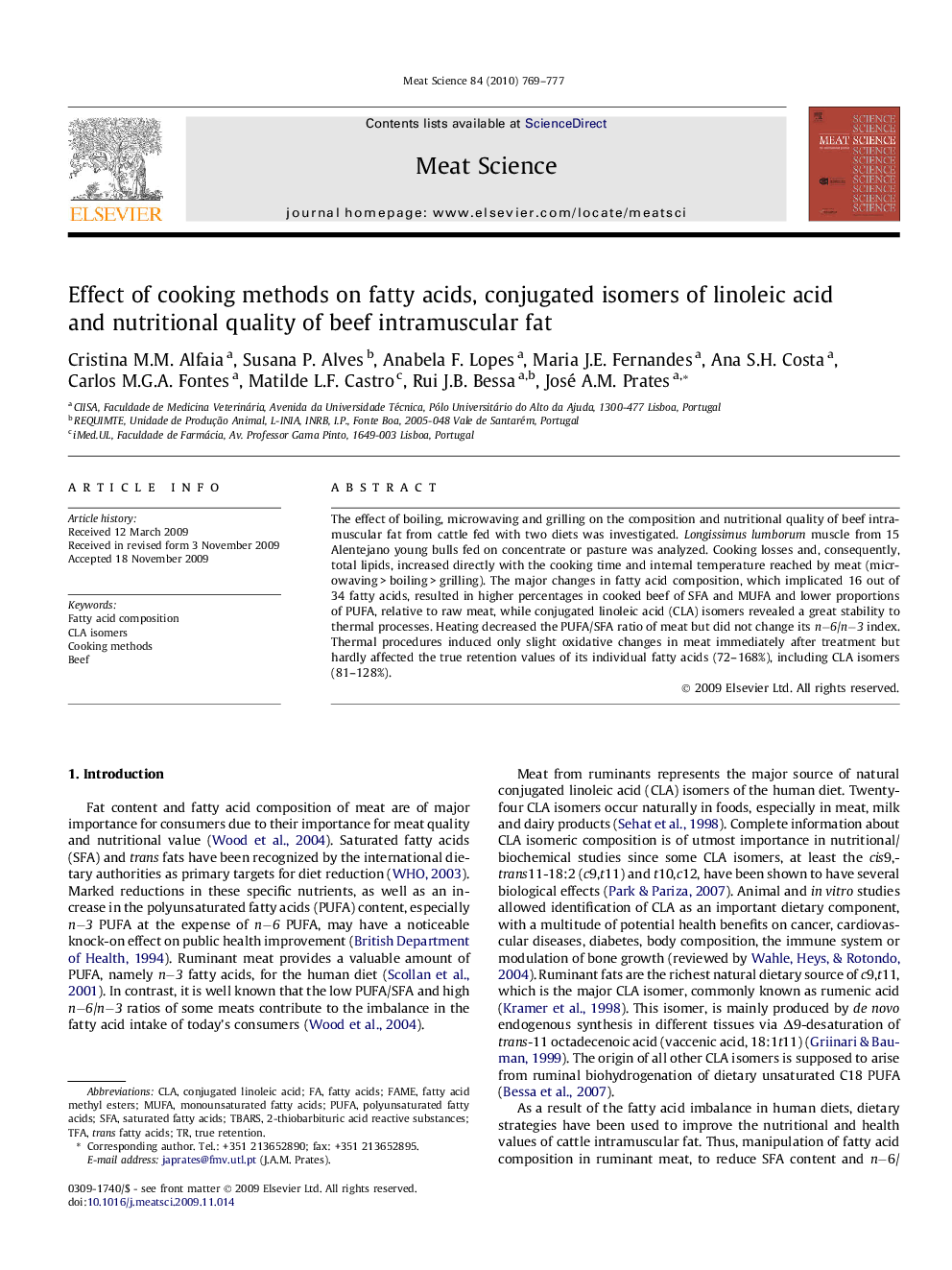| Article ID | Journal | Published Year | Pages | File Type |
|---|---|---|---|---|
| 2450956 | Meat Science | 2010 | 9 Pages |
The effect of boiling, microwaving and grilling on the composition and nutritional quality of beef intramuscular fat from cattle fed with two diets was investigated. Longissimus lumborum muscle from 15 Alentejano young bulls fed on concentrate or pasture was analyzed. Cooking losses and, consequently, total lipids, increased directly with the cooking time and internal temperature reached by meat (microwaving > boiling > grilling). The major changes in fatty acid composition, which implicated 16 out of 34 fatty acids, resulted in higher percentages in cooked beef of SFA and MUFA and lower proportions of PUFA, relative to raw meat, while conjugated linoleic acid (CLA) isomers revealed a great stability to thermal processes. Heating decreased the PUFA/SFA ratio of meat but did not change its n−6/n−3 index. Thermal procedures induced only slight oxidative changes in meat immediately after treatment but hardly affected the true retention values of its individual fatty acids (72–168%), including CLA isomers (81–128%).
